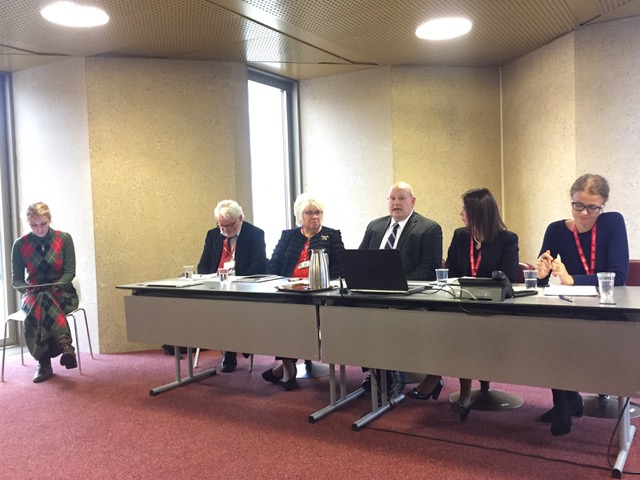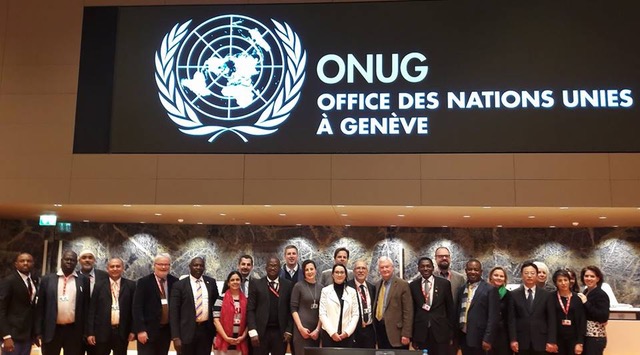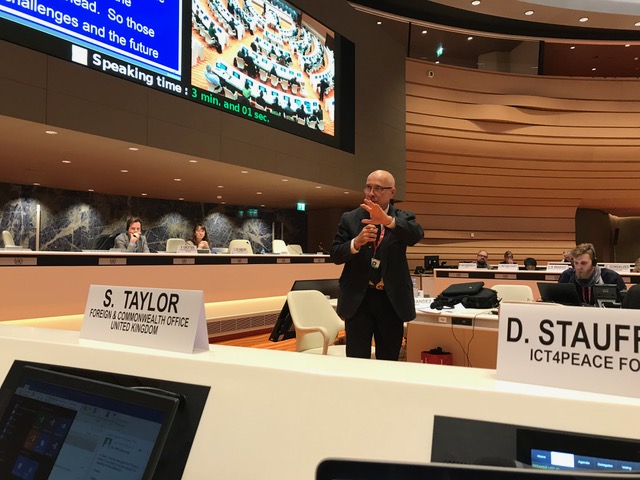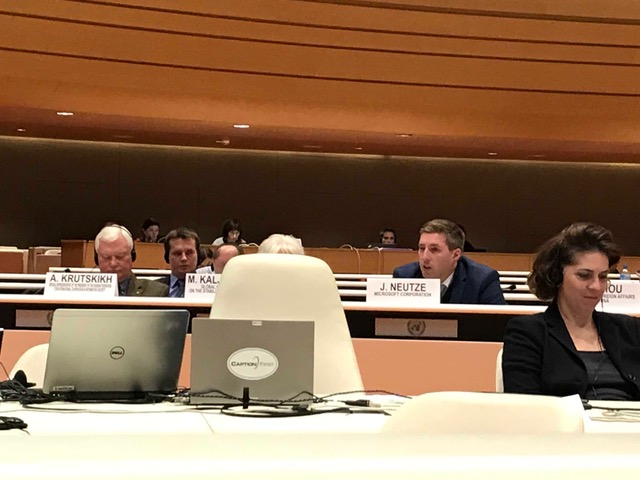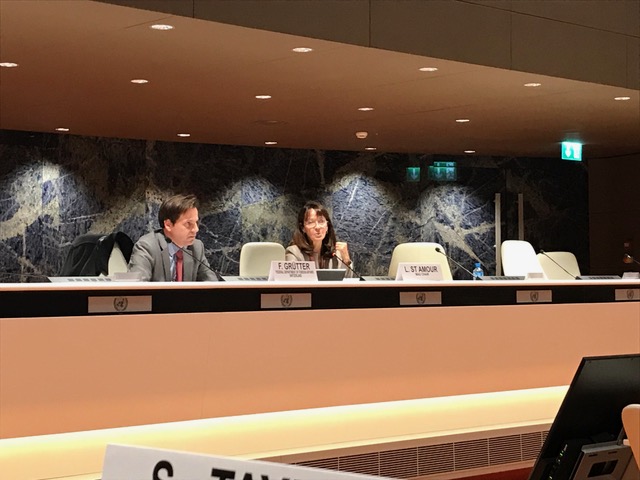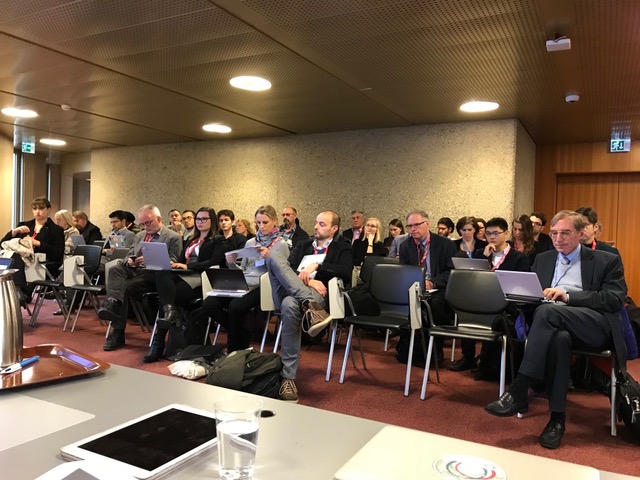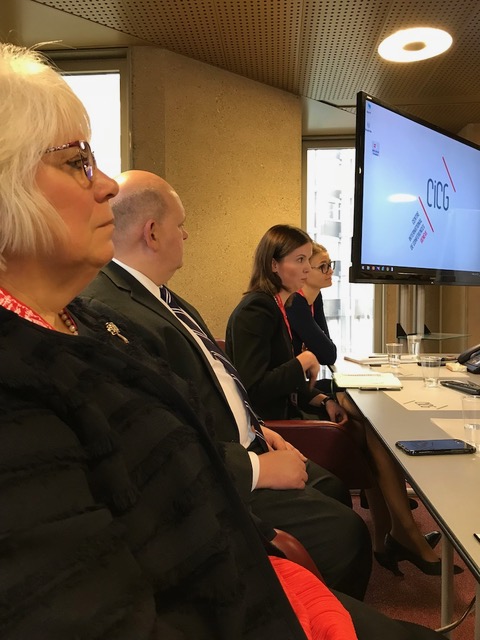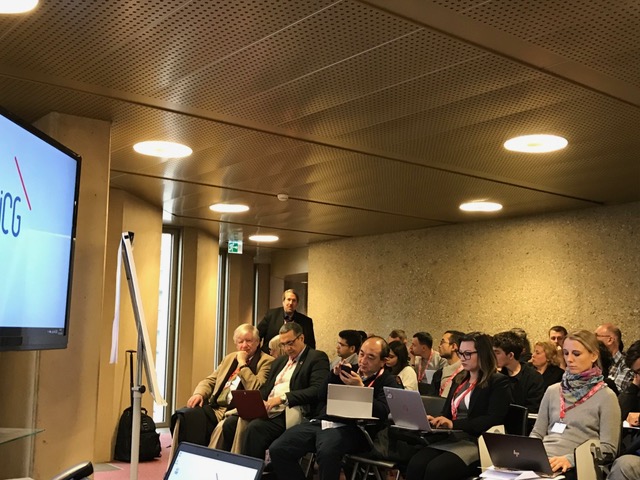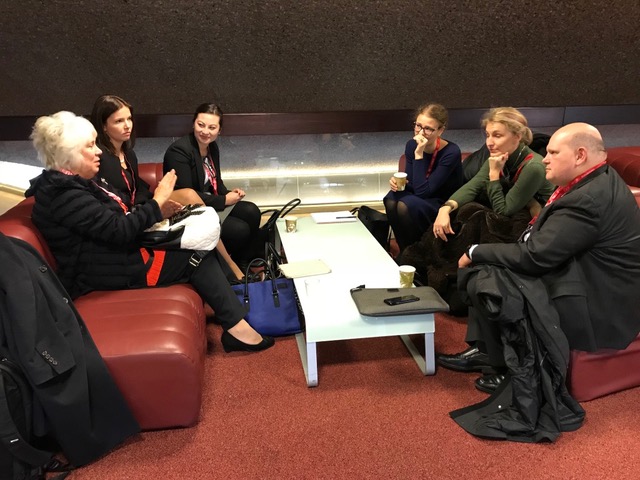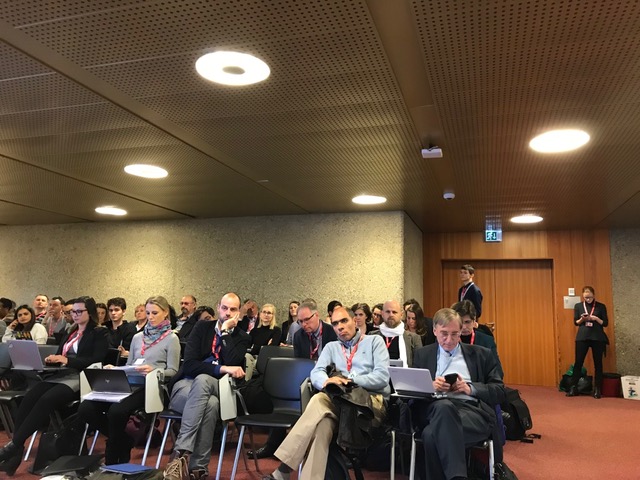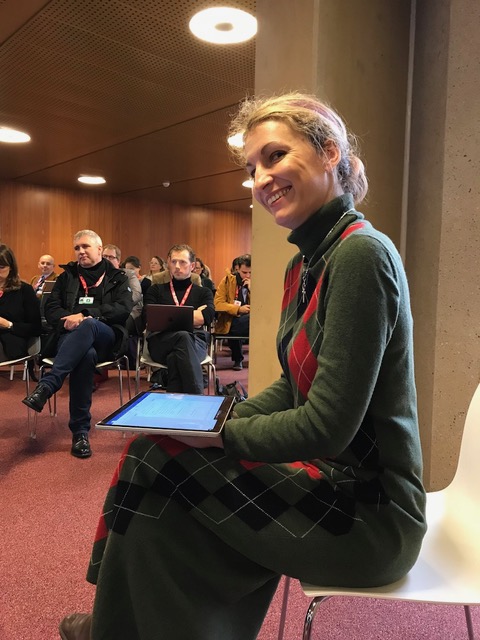ICT4Peace’s Daniel Stauffacher was invited on 17 December 2017 to join a well attended panel discussion on “The Need for a Digital Geneva Convention in Times of Cyber(In)Security” regarding Microsoft’s proposal for a Geneva Digital Convention at the Internet Governance Forum (IGF).
- The panelists included:
Marina Kaljurand, Chair, Global Commission on the Stability of Cyberspace, - Paul Nicholas, Senior Director, Global Security Strategy and Diplomacy, Microsoft,
- Liis Vihul, Chief Executive Officer, Cyber Law International,
- Elaine Korzak, Assistant Professor of Cybersecurity, Middlebury Institute of International Studies at Monterey (MIIS).
- The Moderator was Kaja Ciglic and Rapporteur Jessica Zucker Microsoft
The primary goal of this session was to leverage the IGF’s unique platform for multistakeholder discussion to progress the debate on improving stability and safety of cyberspace. In addition the objectives were to: a) Generate interest in and a baseline understanding of the Digital Geneva Convention; b) Provide an overview of cybersecurity norms and international law discussion so far at the onset of the conference; c) Create key findings drawn from traditionally underrepresented perspectives that will feed directly into the large group roundtable later in the IGF; d) Set up an informal multi-stakeholder group to evolve the conversation after IGF; c) Blog posts and/or op-eds reflecting on the key learnings.
On 19 December 2017 Daniel Stauffacher also participated in the Main Session entitled ‘Empowering Global Cooperation on Cybersecurity for Sustainable Development & Peace’, hosted by the Swiss Federal Department for Foreign Affairs. The Multi-Stake Holder Session included Representatives from eight Governments, two Intergovernmental Organisations, four Academia/Technical Community Representatives, three from civil society, and three from the private sector. The session was co-moderated by Juan Fernandez (Cuba), Olusegun H. Olugbile (Nigeria).
The purpose of the IGF 2017 main session was to have a transparent, open and inclusive dialogue on cybersecurity among all stakeholders, bringing in the voices that traditionally have been left out of the global discussion. Since the inception of the Internet Governance Forum (IGF), Cybersecurity has been one of the key areas of concerns and discussions, with the Internet community stakeholders expressing grave concerns about the future of the Internet, its value for development, peace and preservation of our mutual interests in the cyberspace. The global economic and development agenda as enshrined in the resolution adopted by the General Assembly of the United Nations in 2015, Transforming our world: the 2030 Agenda for Sustainable development, continue to be under a serious threat from being achieved if the global actors decline to shape into global actions commitments and ideas on global cooperation on cybersecurity and preservation of the stability of the Internet.
The existence of critical global cybersecurity issues have underscored the urgent need for a renewed multi-stakeholder dialogue on the security of cyberspace for peace andsustainable development. However, there have been various institutional frameworks for dealing with cooperation on cybersecurity, which are operating in silos, and are yet to be translated into a meaningful global course of action. is expected that the IGF main session on cybersecurity would contribute to a global multi-stakeholder dialogue stream that empowers Global Cooperation on Cybersecurity for Sustainable Development & Peace. Furthermore, the session built upon the previous efforts and outcome IGF 2015 and 2016 main session on cybersecurity.

